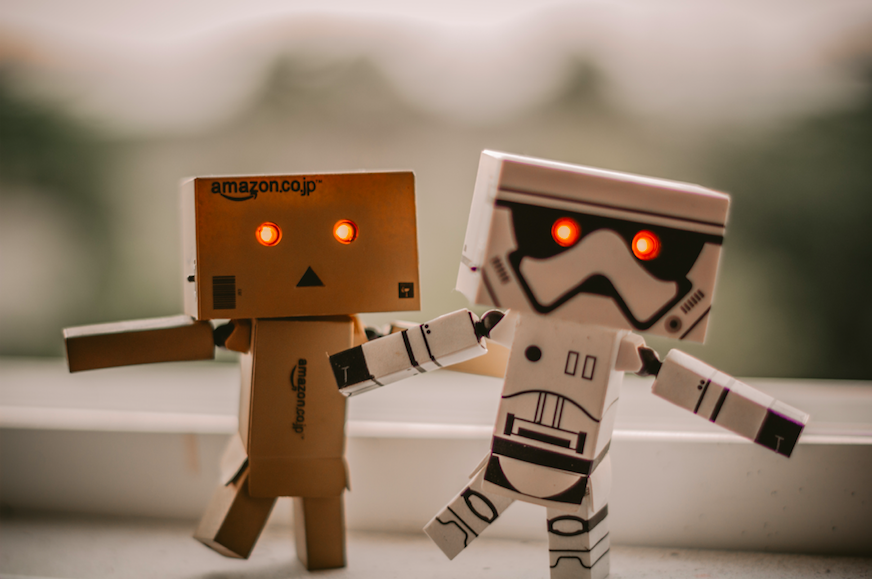
Instead of the robot-based, Hollywood version of AI’s potential, what are the real possibilities for us?
With CES in full swing in Vegas right now, techies are lapping up the latest fads and immersing themselves in all-things AI. From Sony’s robo-dog and Sophia the robotic humanoid learning to walk, to AI controlled ‘urban mobility ecosystems’, the potential power for how AI will impact our lives in future is everywhere to be seen. But how realistic is it that any of these things will have a useful application beyond the walls of the exhibition halls?
So, before robots and driverless cars take over, what are some of the more practical and realistic ways that AI will change the way we live and work? From remortgaging your home, to A/B testing, we went back to our AI experts to find out more. Oh and don’t ever mention remortgaging your house to Tom Cheesewright. He gets angry.
TOM CHEESEWRIGHT
There are endless and revolutionary possibilities for AI. You throw historical data about cancer diagnoses at a machine to spot patterns and you may find that there are early indicators that no doctor has ever recognised. But for something more tangible in the every day, take the property sector. This is a high friction industry with huge amounts of paperwork involved.
“I did a remortgage recently and I found myself turning into the Incredible Hulk on a regular basis.”
I was screaming at the computer or the next piece of post I received. It was such an unnecessary waste of time dealing with these deliberately appalling processes, designed to increase the amount of time that lawyers had to spend on it to maximize their billings. Imagine replacing this process with AI: one on my side, one on their side. The entire transaction could be over in 15 seconds. I won’t weep for the lawyers and the bankers who are replaced by these technologies, because they make us all miserable!
ANDY CRELLIN
For me the biggest and potentially most impactful future benefit will be in the field of medical research.
“Research that would otherwise have taken years, AI and quantum computing could compress into a matter of days.”
Think of the benefits for pathologists all over the world, to use algorithms that can help them spot patterns and diagnose accordingly. The potential to prevent diseases from progressing is vast. We have already seen that some AIs can behave in ways that humans find challenging to interpret, even if the route they took is deterministic. The recent reporting of Facebook “shutting down a project” because AI developed its own language might be a huge exaggeration, but the principle is interesting, and important. I believe we will hold power over Artificial Intelligence for a long time yet, by restricting the resources (power, computer resource, etc.) available to a runaway AI.
NICK ASHMORE
I can see a time where AI plays a more impactful role in automating and improving things like A/B testing, but also in some aspects of creative or headline writing.
“I also envisage AI working as an extension, or the next iteration, of programmatic, able to autonomously optimize campaigns based on multiple data sources.”
But we’ll still always need humans to make sense of the outcomes. Most importantly, I think we’re still some way off AI creating concepts that are nuanced or irreverent. Think of the best, or most memorable, ads of the last ten years. How many could have been created by machine alone? Would an AI ever come up with a gorilla drumming ‘In the Air Tonight’? I doubt it. Creativity for us humans happens when you least expect it – in the shower, walking the dog or in the middle of the night. It’s something that can’t be programmed and personally I don’t think it ever will be.
How creative do you think AI will get in future? Tweet us your thoughts about it now. Or maybe you’re at #CES18? What is your favorite example of AI in action?